Dean Pedro “Joe” Greer, Jr, MD
Clinical Educator Spotlight
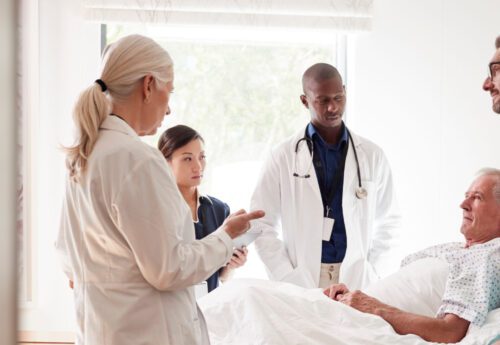
For our inaugural issue, we are honored to spotlight the Dean of the Roseman University College of Medicine, Dr. Pedro “Joe” Greer, Jr., FACP, FACG.
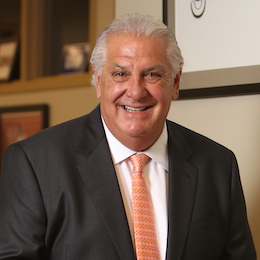
1. Your father was a gastroenterologist, and you are also a gastroenterologist, when did you know you wanted to follow in his footsteps?
Before moving to the United States, my father was a doctor in the Bahamas who cared for people in the poorest parts of the region, always with respect and compassion. Some of my earliest memories are of my father taking my sisters and me with him when he gave inoculations to the children at a remote island school or taking a boat early in the morning to see his patients on a nearby island. More than wanting to be a gastroenterologist like my father, I wanted to BE like my father. I wanted to be a healer who treated all patients with compassion.
In medical school, I considered pediatrics. Pediatricians are the kindest, most selfless physicians I know, but tragedy struck my family when I was in my second year of medical school. My sister, Chichi, was driving home with her friends from college for Thanksgiving when her car flipped. Her friends walked away from the accident with barely a scratch, but she was killed instantly. The devastation I felt from losing my baby sister, and the knowledge that she had died alone, lead me to make a promise to her: I would never let anyone suffer or die alone. Honoring the memory of my sister meant, for me, to attend to patients in their lowest moments. As a medical student, I witnessed profound poverty, held starving children in my arms, and came to believe that my heart was not strong enough to tend to children in their worst moment—I went, instead, into adult medicine–gastroenterology and hepatology.
As a resident, I met Dr. Eugene Schiff and his father Leon, the father of hepatology, when we combined research to publish a paper on viral transmission of hepatitis virus and HIV in different socioeconomic groups, demonstrating increased exposure and infection inversely proportional to a family’s income. What I learned most importantly was not just the data, but to present it in a way that did not make readers fearful of the most vulnerable. His kindness, bedside manner, and my memories of the long Saturday rounds (up to 12-13 hours), because we sat with every patient and listened, will never leave me. As world-famous as he was, his textbook is now in its 12th edition, it never showed. When I applied for 1 of only 4 positions in hepatology and I didn’t match because of a glitch in the system, he held my spot until the glitch was fixed. He also published a paper showing that Cuban Americans had twice the incidence of hepatocellular cancer then the rest of Americans. He saved the blood samples and was able to show, after Chiron Labs identified the antibody to HCV, that the cause was HCV. He was a man of deep intellect, beyond the clinical and basic science, compassion (taking care of Saudi Royalty and unfunded patients), but mostly he taught me, as did my father, the importance of respect and kindness to all. I was blessed to have him as one of my mentors.
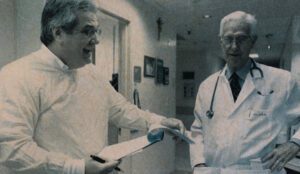
I practiced as a gastroenterologist/hepatologist for 22 years with my father. He passed away from Alzheimer’s at the age of 87 in 2016. He was the first Greer to graduate high school and university and the first Hispanic president of the Miami Dade County Medical Association.
2. You were the first dean of homeless medicine at a US medical school, you have been accoladed for your work addressing health and poverty, including the MacArthur “Genius” Award, the Presidential Medal of Freedom, among so many other others, all while maintaining a clinical practice. How did your journey to care for and about the most vulnerable among us begin?
The date was June 24, 1984, I was an intern at Jackson Memorial Hospital in Miami, FL, and one of the first patients I saw as a medical doctor was dying of TB. The patient in Bed 9 was under isolation precaution, but he was more than isolated—he was alone. He had been found on the streets of Miami and taken to the hospital via ambulance. His friends and family had no idea that he was in the hospital dying.
The promise to Chichi that I would not let anyone suffer or die alone haunted me. When I left my hospital shift, I drove from homeless shelter to homeless shelter trying to find someone, anyone, who knew the man dying in Bed 9. This was the night that I “woke up” to the realities of poverty in the United States. I had witnessed poverty in the Caribbean, but in my own backyard it had been hidden from my view all along, tucked behind freeways, under tarps on abandoned lots, in parts of town I had never seen.
What struck me most about the man’s death was that it was avoidable, he died because he did not have access to healthcare during the time his TB would have been treatable with antibiotics. We are wealthiest country on the planet, and Americans are dying of treatable illness on our streets just because they are poor. This experience sent in motion my life’s work to broaden healthcare access for the underserved, to instill humanism into medical education, and to reshape how doctors understand and treat disease. I started the Camillus House Concern in the cafeteria of a homeless shelter to expand healthcare access. Camillus House Concern has grown from a small operation to a thriving nonprofit that cares for over six thousand patients a year in its 18,000 square foot building.
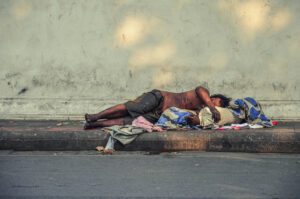
Working with this population of patients, I started to see how policy, not just health policy, but so many policy decisions made by city, regional, and national government and even companies, affect the lives and health of individual people and families. I realized that as a physician I had a powerful voice, so I spoke up. I started writing op eds, meeting with politicians, serving on committees, and actively working on the issues facing my patients most. I am not, however, a politician, and I quickly learned that the world of politics was not for me. I turned my focus to policy. I took a seat on the RAND board of trustees where I continue to serve to this day. During this same period Camillus House Concern grew, and another realization hit me—opening one, two, or even three clinics to serve marginalized patient groups was not enough; I needed to open my profession’s eyes to this population, to remind them of the values of our profession, and to teach them the lesson I learned as a boy watching my father boat from island to island attending to patients—we need to meet people where they are.
3. You now have a singular opportunity to start a medical school from the ground up at the Roseman University of Health Sciences, College of Medicine. What do you see as the most important lessons to instill?
We are creating a medical school with a curriculum to prepare students for the healthcare world that they will graduate into, one that includes recent technologies, population health competence, and health systems science. Most medical students learn medicine by treating patients who are poor. We have successfully integrated the social determinants of health (SDoH) into a medical school curriculum once before by having all medical students, regardless of whether they wanted to go to residency in radiology, orthopedic surgery, or primary care, team with other health professions students to take care of underserved patients where they live, in their homes. This results in students learning the effects and outcomes of the SDoH, the upstream factors of health—the household members are really the best teachers for this. Knowing how to effectively address the social determinants improves health outcomes, lowers healthcare costs, and supports value-based care strategies. This made our graduates incredibly competitive as residents. We were the newest medical school in the state of Florida, but we had the best match rates of any other medical school in the state. And as a new medical school, for the first few years many of the students had only been accepted into our program, many were the first member of their family to graduate from college, and many were from underrepresented minorities in the medical field.
We have the opportunity with overwhelming support we have received from the leadership at Roseman University of Health Sciences to go to further. We envision all Roseman students and faculty–medicine, dentistry, pharmacy, and nursing– teaching and learning together for part of their training as members of interprofessional student practices (with faculty supervision) delivering what we call “household centered care” through the GENESIS program that was recently launched at Las Vegas City Hall. Students will teach householders how to manage chronic disease, for example, and learn from the householders the barriers they are experiencing to becoming healthy. Students will also learn how to care for patients in teams, manage their practices, utilize, and hopefully invent, new technologies, contribute to population health research, and learn the lessons of humility and compassion that come with the responsibility of caring for the most vulnerable among us in their own homes–our learners will be their guests. We are committed to a socially accountable medical school that is community dependent, not just community engaged. We don’t want to be an ivory tower; we want to be porous.
4. No person walks this journey alone, who took this journey with you? What keeps you going?
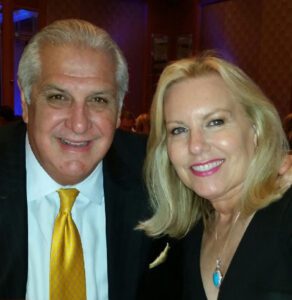
The person who has supported me the most, who has walked this journey with me, is my wife Janus. I couldn’t have done it without her love and support through all of it. We met as undergraduates at the University of Florida and have been together ever since. Our children, Alana and Joey, have also kept me focused on working to create a better world for them and for their children.
I have been truly blessed to have amazing mentors throughout the years, including my father, Dr. Pedro Greer Sr., Dr. Eugene Schiff, Dr. Bob Brook, and Dr. David Lawrence. I also have the unique and distinct pleasure of working with a multi-disciplinary, diverse, and passionate team of educators at Roseman University College of Medicine.
Contents: September - October 2022
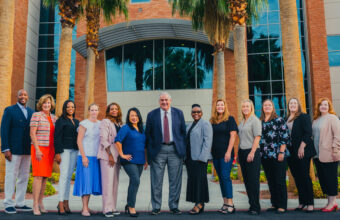
Introduction
September - October 2022
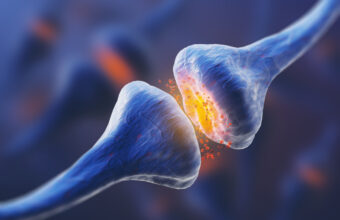
Science of Learning
Human Memory I

National Trends
Teaching, Learning, and Outcomes

Justice
How to Handle a Racist Patient with Medical Students

Health Humanities
The Power of Music in Pediatrics

Featured Resources
KeyLIME Podcast, Rural Health Clinic, & Twitter 101
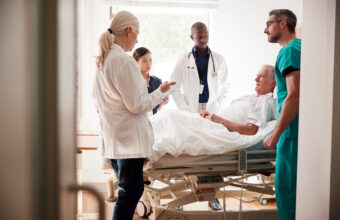
Educator Spotlight
Dean Pedro "Joe" Greer, Jr, MD, FACP, FACG

Announcements
CME Opportunities, Public Talks, and Community Events
Join the Preceptor Mailing List
Page last reviewed: September 30, 2022